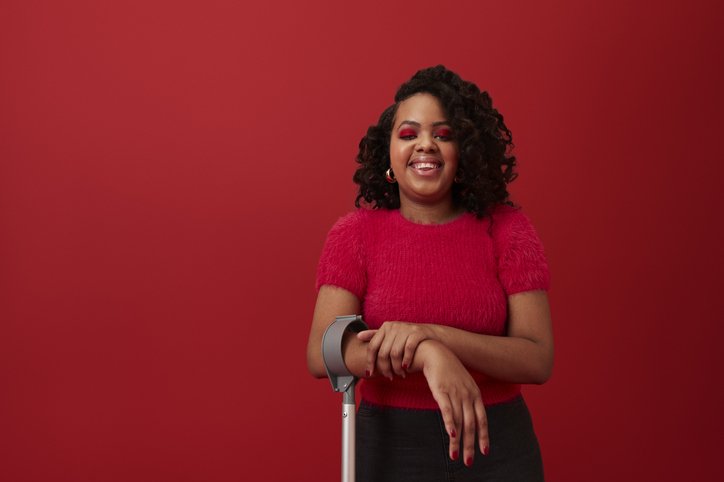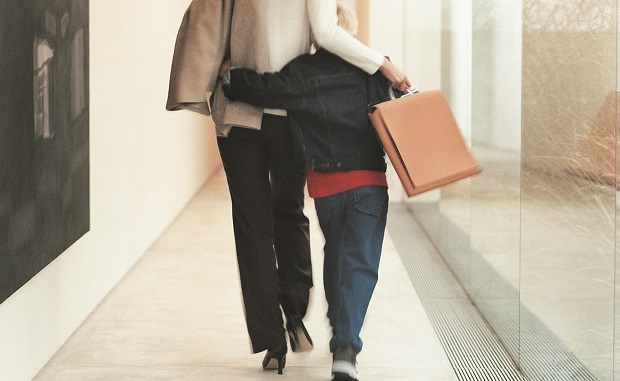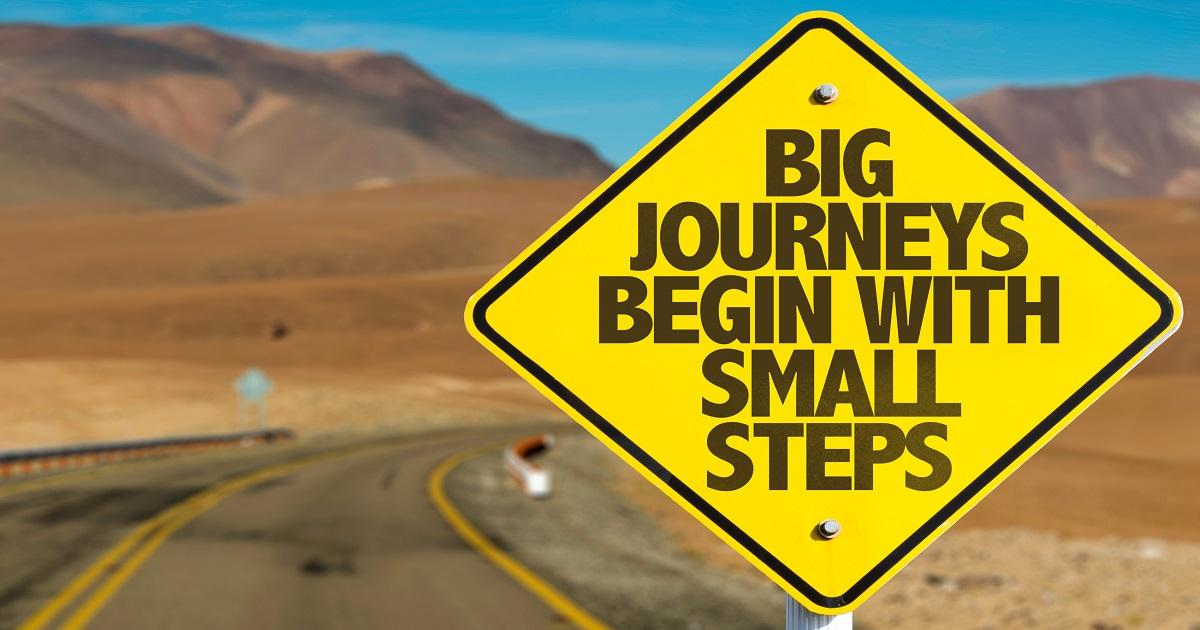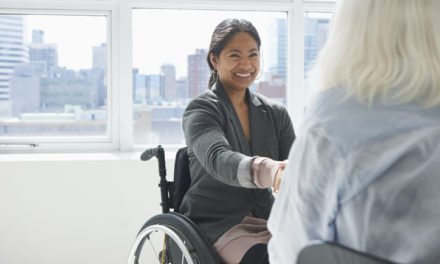
Until she was 5 years old and attending primary school for the first time, Tobiloba Ajayi, the CRO of #LetCPKidsLearn Foundation, Nigeria, didn’t realize she was born with cerebral palsy. She grew up playing with her three older siblings, being on the lookout for their parents in the middle of mischief and doing chores like every typical kid. But for the first time in her life, Tobi was confronted with questions about why she couldn’t walk. It was the first time she felt different.
Since then, Tobi has been confronted with questions about what it means to live with cerebral palsy in Nigeria. In this interview, she tells us her fondest memory of Valentine’s Day, her first heartbreak, and the tough questions she had to ask in relationships as an adult with special needs.
What do you remember about Valentine’s Day growing up?
Watching my parents surprise each other with letters and gifts was my earliest memory of Valentine’s Day. They always took those kinds of celebrations seriously.
My dad consistently wanted to outdo himself from the previous year, and my mum wanted to do the same. I just wanted to be the first person reading the letters and getting a portion of the chocolate my dad bought for my mum. That was pretty much my first song and dance with the Valentine’s Day concept. The wholesome picture of Valentine’s Day didn’t change until I was 13.
What changed about Valentine’s Day at that age?
I got into high school, and the day became more about ranking couples based on who gave the best and most expensive gifts. It was a rite of passage for everyone at school. While the high school experience was a shift from the simple letters and chocolates my parents exchanged each year, I was fully immersed in the rush as a teenager.
Do you remember what your first Valentine’s Day felt like?
Before I had my first boyfriend at 15, I spent days leading up to Valentine’s writing letters for my friends in relationships — or seeking them out. Everyone knew I could write, so we huddled at the back of the class while I crafted the sweetest notes to friends’ crushes. I was what Nigerians would call “hot bread” back then. But I had less time to help anyone out when I myself started dating in the 11th grade.
LOL. Tell me about your first relationship.
Everything was much simpler in high school. He got my attention with the letters he snuck into my locker. He also knew Valentine’s Day was a big day for me. I got a designer perfume for our first one together. I can still picture the shock on my dad’s face when I showed him the gift after school. He couldn’t believe I made a boy save his lunch money just for Valentine’s Day.
Sadly, my relationship ended in our first year of college. We were in different schools, so distance was a factor, but I also suspected the reality of being with someone living with a disability dawned on him as we got older.
Did he do something that made you feel that way?
No, but I knew his mum asked him to reconsider our relationship. I called to speak to him once, and she picked up the call instead and asked me to think about moving on. He broke up with me that summer.
Now that I’m older, I understand where he was coming from. What else could he have done? We were teenagers, and his mum was looking at things from the perspective of a concerned adult. But at the time, I cried. Breaking up over summer break meant spending the whole time sobbing at home. I kept thinking he was trying to find any excuse to break up with me.
I’m sorry that happened.
Yeah. My dad tried to make me laugh through the whole thing and made jokes about the thrill of young love. He didn’t take the heartbreak seriously. In hindsight, that was probably for the best. After the summer break, I was over the emotions, distracted by the stress of college classes.
Was any part of you hesitant to date again after your first heartbreak?
Yes. My next relationship started off as a rebound, but we ended up dating for five years. We were long-distance and somehow managed to make things work. Valentine’s Day with him almost reminded me of the memories I had of my parents as a kid. We always tried to outdo each other with planning and gift-giving.
How about dates? What was a typical date night?
Most of our weekly dates were “Netflix and Chill” dates. We studied in different schools and needed whatever time we had together to catch up in person and grow our relationship.
The only issue with this relationship was his friends. He had some friends quietly asking why he’d date a disabled girl. They felt it wasn’t a smart move, but he didn’t seem to care, so neither did I.
But in my final year of college, it became obvious we were heading in different directions. Marriage came into the picture, but I wanted to focus on getting into law school first and building a career. Eventually, he decided waiting wasn’t an option, and ended things.
I remember getting home and wailing on the floor when I got home. Even though I wasn’t ready to get married at the time, part of me hoped he would wait. While my head got why things needed to end, my heart was not exactly getting the memo.
Did you consider changing your mind?
No. It was my worst breakup, but I didn’t want to be pressured into a long-term commitment. Eight months after, I met someone else. He was slightly older than me and more understanding of my timeline than my last boyfriend.
I’m curious, was there any difference in how other people approached your relationship now versus in high school?
Yes. Unlike when we were teenagers, no one tried to be discreet with their unsolicited opinions about my relationship. Someone always pointed out the physical needs of living with cerebral palsy.
With this relationship, in particular, no one ever hid their discomfort and disapproval. Of course, they never said anything to me, but as someone with a disability, I knew when people judged me. I could sense the tension in the room whenever I walked in.
Did you ever confront them?
My partner did most of that. He tried to defend our relationship, but that’s not what I wanted. Relationships without the pressure to justify loving each other were hard enough, and ours would be a constant battle.
I knew we needed to end things when one of the numerous opinionated minds in our relationship accused him of dating me because of my parents’ wealth. All I could think of was how long it would take another person to get tired of me.
I couldn’t wait for another heartbreak, so we decided to end things mutually over lunch a few weeks later. At first, we tried to talk about the possibility of trying, but there was no point with the emotional stress.
How did you handle this breakup?
With this relationship, I was actually ready to get married. After two years together, I thought we’d get to that point. Seeing my friends get engaged and married made me feel worse. My only distraction from the situation was getting my first job after law school. But there were days I still cried after work.
I’m sorry you dealt with that.
I went through a phase of dating anyone and lowered my standards. Nothing long-term was important to me, and I wasn’t thinking about whether the person or relationship was right for me.
Was it easier to ignore the pressure of a long-term relationship?
For a few months. The cycle of being with people was still tiring. I wanted to experience love, but I also didn’t want to stop loving myself enough to want something more. At some point, I knew I needed to focus on my value regardless of being alone. It took some time to stick, but I kept telling myself the single life didn’t make me less of a fully functioning person.
Did this mean officially giving up on dating?
No. I challenged myself to have tough conversations early. When someone expressed interest in me, I began to skip the glitz and glam and focused on explaining the reality of a long-term relationship:
The financial cost of medication where needed, my physical needs, and the stigma and discrimination that society will likely slam them with. I also wanted to get a sense of how willing they would be to support me when my muscles are too weak to get me out of bed. If anything seems overwhelming, then we can’t be in a relationship.
Are financial and physical needs the most important in navigating romantic relationships with people with special needs?
The “in love” feeling is very fickle. Taking the time to understand a person’s situation before engaging emotionally is what matters; it differs for many people. For instance, ask yourself how you feel about traditional gender roles.
With cerebral palsy, I can’t take on the physical demands or expectations of a woman always cooking and cleaning. What happens on the days I just can’t? Because there are many days I can’t. When I don’t meet those expectations, will my partner be venerated as a saint for staying with me? In that scenario, ask yourself if you’re willing to date long-term without resentment.
And for people with special needs trying to find love, what would be your advice?
You need to understand the realities of your disability enough to explain the possibilities of what the “long term” might look like in a relationship. Can your potential partner think long-term without resentment?
While these are hard questions, don’t believe you have to settle for anyone because you have a disability. A disability doesn’t take away your right to choose who to date or marry.


















